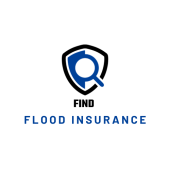Living in a condominium offers a harmonious blend of community living and shared amenities. Amidst the conveniences and camaraderie, it’s imperative for condo owners to turn their attention to a critical aspect of homeownership—flood insurance. In this comprehensive blog post, we’ll navigate through the intricate waters of flood insurance for condos, shedding light on its significance, the factors influencing coverage, and how condo owners can ensure their homes are safeguarded against the unpredictable forces of nature.
Understanding Flood Insurance for Condos
Before delving into flood insurance specifics, it’s crucial to grasp the dynamics of flood risks that condos may face. Geographical factors play a pivotal role; condos situated in low-lying areas, close to water bodies, or in regions with heavy rainfall are inherently more vulnerable. Climate patterns, including intense rainfall and storm surges, can elevate the risk, especially for coastal condominiums. Urbanization and infrastructure, such as impervious surfaces and stormwater management, also contribute to the potential for flooding. Condo owners should be attuned to these factors to comprehensively assess their unit’s susceptibility to flooding.
 The Basics of Flood Insurance for Condos
The Basics of Flood Insurance for Condos
Flood insurance is a financial safety net that condo owners must not overlook. Understanding its basics is paramount. What does flood insurance cover? Typically, it includes damages to the building structure, electrical and plumbing systems, appliances, and essential personal belongings. The National Flood Insurance Program (NFIP) serves as a cornerstone, providing a standardized approach to flood insurance accessibility. Condo owners need to comprehend the coverage options and limits to ensure they have a robust plan tailored to their specific needs.
Master Policies vs. Individual Coverage
Condominium associations often provide master policies, a collective safety net for the entire property. However, the limitations of these master policies necessitate individual coverage for condo owners. Unraveling the intricacies of master policies versus individual coverage is crucial. It empowers condo owners to ascertain the extent of their protection and make informed decisions about additional coverage tailored to their unit.
Assessing Flood Risk: A Proactive Approach
Empowering condo owners to take a proactive stance for assessing their unit’s vulnerability to flooding. From evaluating geographical features like elevation to understanding proximity to water bodies, condo owners gain insights into the specific factors influencing their risk profile. The introduction of floodplain mapping serves as a valuable tool, allowing condo owners to visualize and comprehend the flood risk associated with their homes.
The Urgency of Action
Climate change is intensifying the frequency and severity of extreme weather events. Delays in securing proper flood insurance can have severe consequences. Condo owners are encouraged to assess their risk now and take immediate steps to ensure their homes are adequately protected against potential flooding events.
Conclusion: Navigating Towards Security
As we navigate the complex waters of flood insurance for condos, it becomes evident that proactive measures are paramount. This comprehensive guide serves as a beacon, illuminating the path toward a secure future for condo owners. By understanding the risks, exploring coverage options, and taking decisive action, condo owners can navigate the waters of uncertainty with confidence, ensuring that their condos remain safe and resilient against the unpredictable forces of nature.



